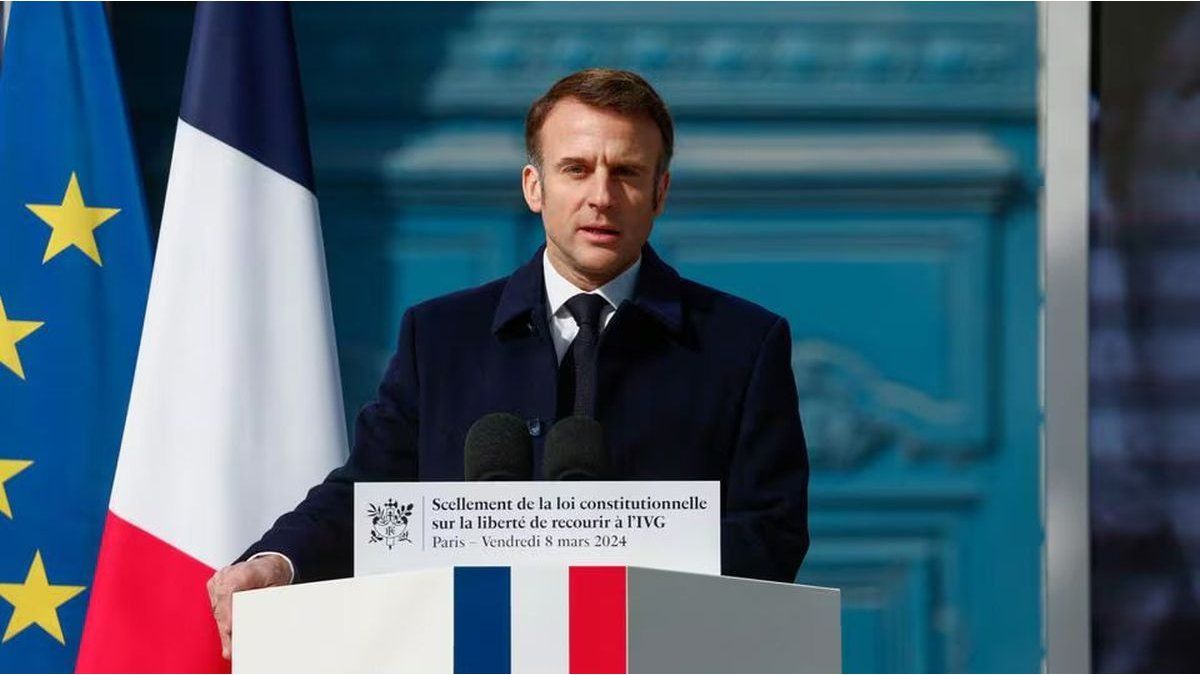To return to the markets, Argentina would have to wait around 2 years, if it makes the changes suggested by the entity’s research team. Right now, when time is running out, a report arrives whose decoding is distressing. According to JP Morgan, the report suggests that in the next 2 years there would be no possibility of returning to the voluntary markets.
It also expresses that, as they did previously with Colombia and Peru, analyzing their MSCI Morgan Stanley Capital Investment (MSCI Inc.) position in EM (Emerging Markets), through a simulation exercise They represented what the MSCI Argentina would look like (if capital controls were lifted and only in that case, Argentina would be classified as an EM, improving its rating).
In this theoretical exercise, the results suggest that the MSCI Argentina Standard Index would be composed of 4 stocks: YPF, Galicia, Banco Macro and Pampa, while the Small Cap Index (usually defined as a company with a market capitalization of less than 2 billion dollars) would have 11 components. With an estimated weight of 0.2% in EM, Argentina would be located between Colombia and Peru in the EM Index. If and only if the reclassification materializesestimate that the potential entries to the EM index could reach almost 1 billion dollars, including $786 million in the Standard Index and $176 million in the Small Cap Index.
For this to eventually happen, the “lifting of the cepo” would have to occur (for now it will not happen), the macroeconomic conditions would have to stabilize (for now there will be no devaluation, nor will the electricity, gas, and transportation rates be updated) and the relationship between remunerated liabilities in local currency and international reserves would have to improve (also not likely).. They cleverly point out that it is a “necessary condition”.
They double the bet and put an expiration date on it, saying that “The Economic Research team expects to see progress in this relationship during the fourth quarter, amid an upward trend in net reserves” (suggesting a necessary devaluation, due to concerns about the BCRA’s negative net reserves).
WARNING: If the “cepo” is not lifted, there is no likely next step. If the “cepo” is lifted, even so, in order for MSCI to start a consultation process, it would take at least a year (suggesting 2 years in an example) to see Argentina reclassified back to EM.
Under current market conditions, Argentine stocks are classified in terms of size and liquidity so that the Standard Index is classified as EM. (YPF, Galicia, Banco Macro and Pampa) are the four names that were estimated to make up the Standard Index. They all meet the following requirements:
1) Total market capitalization size greater than US$2.76 billion,
2) Market adjusted by free float of over US$1,380
3) ATVR (Average Traded Value Ratio) a 3 and 12 months higher than 15%.
UNCERTAIN POTENTIAL ASSUMPTIONS
If Argentina were to be reclassified to EM, the Standard Index would weigh 0.18% in MSCI EM and 2.2% in MSCI LatAm (Latin America). In EM, Argentina would weigh 0.18%, between Colombia (0.10%) and Peru (0.30%). As for the weight of the components in the EM Index, YPF would weigh 0.06%, Galicia 0.06%, Banco Macro 0.04% and Pampa 0.03%. While in the LatAm index, YPF would weigh 0.74%, Galicia 0.70%, Banco Macro 0.45% and Pampa 0.35%. Potential inflows in EM would amount to US$ 962 million. For the Standard index, if the 4 Argentine stocks are added, they estimate potential inflows of US$ 786 million. For the Small Cap EM index, the addition of 11 stocks would potentially generate inflows of 176 million, according to estimates.
Examples of how long a reclassification can take
The recent reclassifications of Argentina by MSCI had the following schedule: In May 2019, Argentina was reclassified from Frontier Market to Emerging Markets after a consultation process of two years. In September 2019during the last months of the Macri government, “the cepo” led MSCI to reclassify Argentina as independent. After that event, It was only in June 2021 (almost 2 years ago) that MSCI announced that it would reclassify Argentina from EM to Independent with the November 2021 Semi-Annual Index Review.
Highlights of the improving macroeconomic scenario
In the note, already comparing the first 8 months of Milei versus the 8 months of Macri, they compared 14 macroeconomic and market metrics, at the same stage and some of the main findings can be summarized as follows:
1) The index of Milei’s government approval rating, according to Management & Fit, has remained stronger than Macri’s government at the same stage
2) Regarding the economyalthough the initial situation under Milei was significantly more challenging, the magnitude of The improvements after 8 months seem greater under the Milei administration.
3) Even though The country risk (measured by the 10-year CDS) is currently approximately 5 times higher than it was under the first 8 months of Macri’s government.
Timing and conditions for lifting capital controls
As for the time and conditions for lifting the “cepo”, Economic authorities continue to emphasize that the process will develop once certain macro and financial conditions are met, suggesting that they are “thinking about it” and do not feel comfortable..
He concludes by saying that there is a limit that arises from the remunerated liabilities of the BCRA that are linked to the needs of sterilization of pesos associated with the accumulation of reserves, and that the negative real rates that Argentina has today are only feasible with “the clamp”.
From the report we could deduce that, If interest rates were to rise, the recession would be so great that tax revenue would fall due to the deepening of the depression and the fiscal surplus would end.. On the other hand, in the event that the “cepo” were lifted, maintaining negative interest rates – unless the retention of the “roleo” is carried out compulsorily, or is reprofiled -, The market would trigger an avalanche of pent-up and postponed demand, which would generate a large-scale devaluation..
Director of the Esperanza Foundation. https://fundacionesperanza.com.ar/
Professor of Postgraduate Studies at UBA and Masters in private universities. Master in International Economic Policy, PhD in Political Science, author of 6 books, @pablotigani
Source: Ambito
David William is a talented author who has made a name for himself in the world of writing. He is a professional author who writes on a wide range of topics, from general interest to opinion news. David is currently working as a writer at 24 hours worlds where he brings his unique perspective and in-depth research to his articles, making them both informative and engaging.




